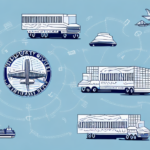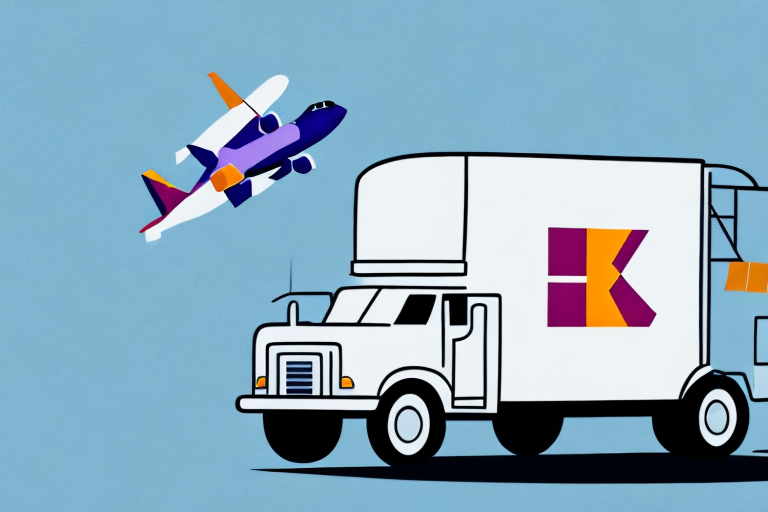Becoming a UPS Freight Contract Carrier: What You Need to Know
Considering a career as a UPS Freight contract carrier? This comprehensive guide covers everything you need to know, including the benefits, requirements, application process, and strategies for running a successful contract carriage business. Whether you're an experienced truck driver or a small business owner, this information will help you navigate the path to becoming a UPS Freight contract carrier. Let’s dive in!
Benefits of Being a UPS Freight Contract Carrier
Partnering with UPS Freight as a contract carrier offers numerous advantages:
- Consistent Work and Reliable Payment: Enjoy a steady flow of freight assignments and guaranteed payments, providing financial stability.
- Fuel Savings and Maintenance Discounts: Access to UPS Freight’s fuel-saving programs and discounts on maintenance and repairs can significantly reduce operating costs.
- Reputable Partnership: Aligning with a well-established company like UPS Freight enhances your business’s credibility and opens doors to a broader client network.
- Training and Support: Benefit from comprehensive training programs, including safety training and compliance assistance, ensuring you operate efficiently and legally.
According to the 2023 State of the Industry report by Inbound Logistics, partnering with major carriers like UPS Freight can increase your potential earnings by up to 20% due to consistent high-volume shipments.
Requirements to Become a UPS Freight Contract Carrier
Before applying, ensure you meet the following prerequisites:
- Equipment Standards: Possess at least one truck that meets UPS Freight’s age and safety standards.
- Licensing: Hold a valid Commercial Driver’s License (CDL) and necessary commercial auto insurance with minimum coverage limits.
- Registration Numbers: Have a USDOT number and a Motor Carrier Authority (MC) number.
- Safety Rating: Maintain a satisfactory safety rating with the Federal Motor Carrier Safety Administration (FMCSA).
For detailed safety standards and compliance information, refer to the FMCSA regulations.
Application and Screening Process
Filling Out Your Application
The application process involves completing an online form with comprehensive details about your business, vehicles, and experience. Ensure accuracy and thoroughness to enhance your application's credibility:
- Company Information: Legal name, address, and fleet details.
- Equipment Details: Make, model, year, and safety certifications of your trucks.
- Experience: Highlight years in the industry and any special certifications.
Providing detailed information helps UPS Freight assess your suitability as a reliable carrier.
Preparing for the Screening Process
The screening process includes a background check, safety audit, and review of insurance and bonding documents:
- Background Check: Ensure a clean driving and business record.
- Safety Audit: Maintain compliance with safety regulations to pass the audit.
- Documentation: Keep all insurance and bonding documents up-to-date and readily accessible.
For more information on the screening criteria, visit the UPS Freight contract carrier application page.
Insurance, Bonding, and Financial Considerations
The Importance of Insurance and Bonding
Proper insurance and bonding are crucial for protecting your business and complying with UPS Freight’s requirements:
- Commercial Auto Liability Insurance: Minimum coverage of $1 million.
- Cargo Insurance: Minimum coverage of $100,000.
- Surety Bond: Minimum coverage of $10,000.
Different states and cargo types may require additional coverage. For detailed insurance requirements, refer to the FMCSA insurance regulations.
Financial Considerations for Contract Carriers
Managing finances effectively is key to running a profitable contract carriage business:
- Operating Expenses: Budget for fuel, maintenance, repairs, insurance, and bonding.
- Emergency Fund: Set aside funds for unexpected expenses like breakdowns or accidents.
- Revenue Management: Track income and expenses meticulously to ensure profitability.
According to the Transit America financial management guide, effective budgeting can improve your profit margins by up to 15%.
Contract Negotiation and Carrier Responsibilities
Negotiating Your Contract with UPS Freight
Once approved, negotiating terms is crucial. Carefully review the contract to understand payment terms, service levels, and obligations:
- Payment Terms: Clarify rates, payment schedules, and any incentives.
- Service Levels: Understand expectations regarding delivery times and service quality.
- Obligations: Be aware of compliance requirements and performance metrics.
Consider consulting with a transportation industry expert or legal advisor to ensure favorable contract terms.
Understanding Your Responsibilities as a Contract Carrier
As a contract carrier, you are responsible for:
- Timely Deliveries: Ensure shipments are delivered on schedule.
- Safety Compliance: Adhere to all safety regulations, including hours-of-service rules and equipment safety standards.
- Equipment Maintenance: Regularly maintain your fleet to prevent breakdowns and ensure reliability.
Maintaining high standards in these areas helps sustain a positive relationship with UPS Freight and minimizes operational disruptions.
Building Relationships and Growing Your Business
Building a Strong Relationship with UPS Freight
Fostering a positive relationship with UPS Freight can lead to more business opportunities and support during challenges:
- Be Responsive: Address communications promptly and professionally.
- Accept Feedback: Use feedback to improve your services and operations.
- Maintain Professionalism: Ensure your drivers represent your business and UPS Freight positively.
Strong partnerships can result in priority assignment for high-value shipments and long-term collaboration.
Maximizing Your Earnings as a Contract Carrier
To enhance your profitability, focus on efficiency and additional revenue streams:
- Optimize Routes: Plan efficient routes to reduce fuel consumption and travel time.
- Minimize Fuel Costs: Utilize fuel-efficient driving practices and take advantage of fuel discounts.
- Offer Specialized Services: Provide expedited or specialized freight delivery options to attract higher-paying clients.
Implementing these strategies can increase your earnings by ensuring higher utilization of your fleet and reducing operational costs.
Growing Your Business as a UPS Freight Contract Carrier
Scaling your contract carriage business requires strategic planning and investment:
- Expand Your Fleet: Gradually add more trucks to handle increased freight volumes.
- Diversify Services: Offer a wider range of services to meet varied client needs.
- Expand Service Areas: Extend your coverage to new geographic regions to capture more market share.
Continuous growth can lead to greater market presence and increased revenue opportunities.
Overcoming Common Challenges Faced by Contract Carriers
Being a UPS Freight contract carrier comes with its set of challenges. Common issues include managing expenses, dealing with unexpected delays, and maintaining a positive relationship with UPS Freight. Here are some strategies to overcome these obstacles:
- Stay Organized: Use logistics software to track shipments, manage expenses, and schedule maintenance.
- Effective Communication: Maintain open lines of communication with UPS Freight and clients to promptly address any issues.
- Adaptability: Be prepared to adjust to changing circumstances, such as route changes or fluctuating demand.
UPS Freight offers support and resources to help contract carriers address these challenges, ensuring a smoother operational experience.
Conclusion
Becoming a UPS Freight contract carrier is a promising opportunity for those with the right equipment, licenses, and dedication to delivering high-quality service. By understanding the benefits, meeting the requirements, navigating the application process, and implementing effective business strategies, you can build a successful and profitable contract carriage business. Stay informed, stay compliant, and leverage the support offered by UPS Freight to thrive in this competitive industry.




















